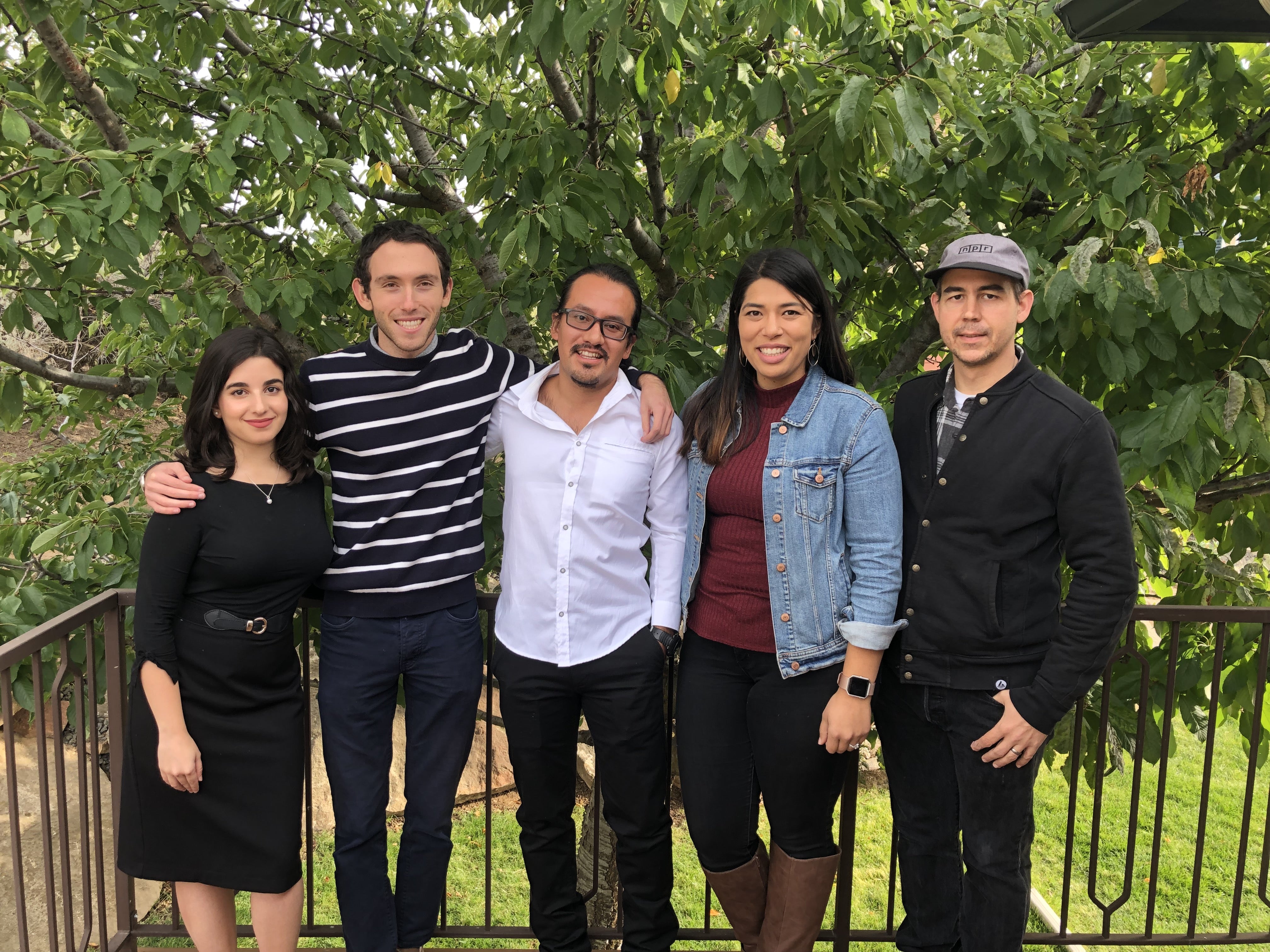The growing graduate student body at Boise State University comprises students from many walks of life, studying disciplines that traverse the academic spectrum. This semester, five new students joined that population, beginning their journey as both graduate students and as dean’s fellows. The Dean’s Graduate Fellowship, supported by the Graduate College, was created in 2016 to recruit students from traditionally underrepresented populations in graduate education.
“The Dean’s Graduate Fellowship helps us to recruit graduate students who reflect diverse identities, perspectives and experiences, which enhances our entire scholarly community,” said Tammi Vacha-Haase, dean of the Graduate College. “These promising scholars bring life experiences and professional achievements that contribute to academic excellence at our institution. I am pleased that the fellowship allows us to increase access and create a pipeline of scholars and change agents who are committed to diversity, inclusion and social justice.”
This fellowship program has created opportunities and a sense of welcome within the academic community for students from traditionally underrepresented populations.

“Becoming a dean’s fellow has given me tools to answer the constant question in my mind of ‘Do you belong here?’ Now I know there are others besides my advisor, family and friends that believe I belong. There are others that are encouraging and supporting me,” said Carlos Garcia Linares, a doctoral student in the Ecology, Evolution and Behavior program. “Becoming a dean’s fellow has allowed me to realize that the struggle and effort has been worth it and noticed so far.”
Linares currently is studying the effects of light pollution on insect and bat populations. As part of his research, he is creating field experiments that examine how the use of streetlights are changing the distribution of moths, and how different bat species respond to those changes.
Linares also hopes to mentor other students like himself as they navigate higher education.
“I am currently working on my materials to apply to the FORD fellowship, a scholarship that supports students from underrepresent communities who are interested in becoming professors and mentoring future students,” he said.
In addition to social support, the Dean’s Graduate Fellowship allows recipients to fully focus on their studies.
“The Dean’s Fellowship has tremendously impacted my ability to access graduate education,” said Noah Szajowitz, a history master’s student. “It allows me to have considerably less worry about financial matters and focus entirely on my studies of New Zealand history.”
Szajowitz is exploring the historical profession in New Zealand over the past century and uncovering how New Zealand historians have viewed themselves.
“This [research] is branching off into a focused study of the social history of the 2nd New Zealand Division. Ideally, this will allow my research to encompass a micro-historical analysis of the soldiers of the 2nd New Zealand Division, through the lens of their everyday lives and the lives of New Zealanders on the home front during World War II,” said Szajowitz.
While the funding itself is vital, benefits of the Dean’s Graduate Fellowship include networking, professional development and community building. The Dean’s Graduate Fellowship seeks to foster networking pathways and create conversational spaces between students and higher-level leadership.
“At the last meeting hosted at Tammi’s house, I was able to connect with several deans. I heard about the personal experiences of some deans and leaders at Boise State that shows me how unique everyone’s path is,” said Linares. “I was able to realize how much in common I had with people that have a complete different formation, culture and language than me.”
Linares and Szajowitz are joined by three other dean’s fellows this year: anthropology master’s student Daniela Gomez, early and special education master’s student Rebecca Larson and visual arts master’s student David Beams.
– By Kinzi Poteet